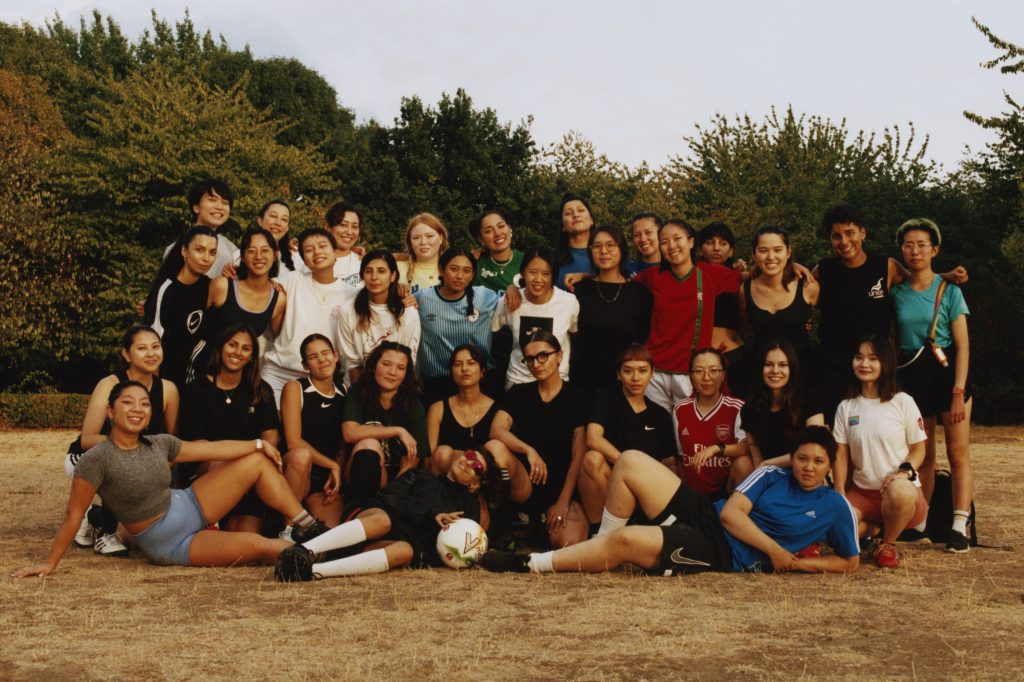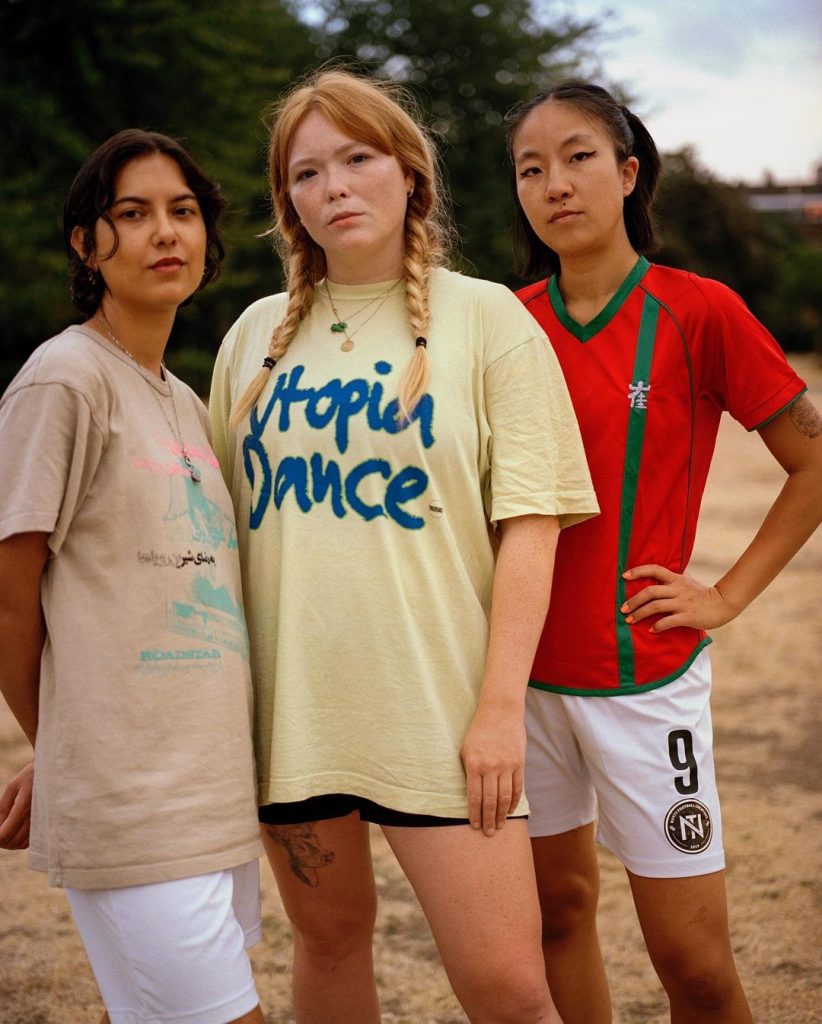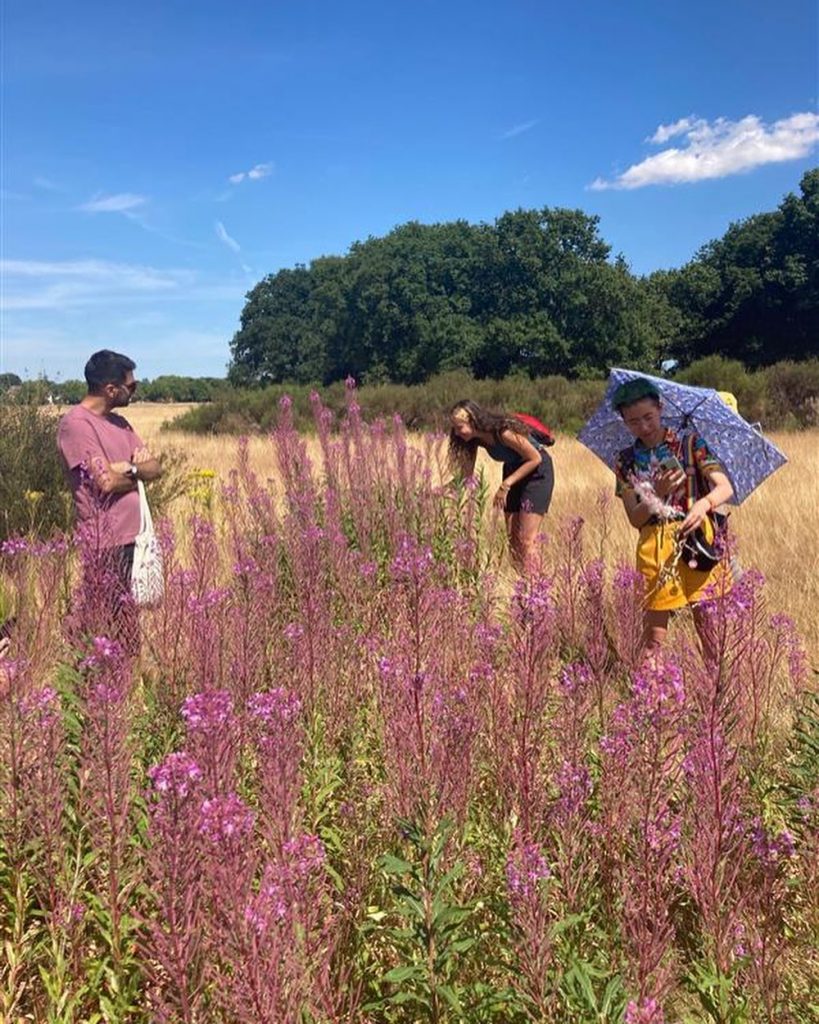
Baesianz has always centred community at the heart of their work. They host a football club Baesianz FC, created by the co-founders and the artist Nicole Chui as a safe space for women, trans and non-binary players from the Asian community. Their frequent fundraising events to support Asian and diasporic communities draw huge crowds (a recent raffle at Jumbi for the Turkey and Syrian earthquake saw punters raise £3,000 for the cause). Their followers can indulge in cinema clubs that screen radical arthouse films from the diaspora. And soon an adventure club where they can explore the outdoors together. The London-based, non-profit arts collective is seeking new ways of bringing Asian Brits together.
Roxy Farahmand, one of the co-founders, tells gal-dem, “We couldn’t be a collective without this sense of kinship. I think art is a powerful tool for change, especially through communal action. The most impactful social change happens together and a lot of our work is event-based to create a space where we can connect and work together.” In March, Baesianz hosted a fundraiser for the Turkey, Syria, and Kurdistan Earthquake appeal with a night filled with music from Turkish, Syrian, and Kurdish musicians and DJs and a highly chic raffle – think Simone Rocha’s egg bag and Spoons’ famed Pandan cakes as prizes. Last year, the collective held a residency at Bow Arts, ‘ME 2 U: A collective manifesto’, “centred around collectivity, communal sharing, and creativity”, Sarah Khan, filmmaker, and co-founder explains, “and how these things become tools for survival.” With martial arts artists, supper clubs, and ‘Make a mixtape for your best friend’ workshops, the collective rethinks healing through acts of joy performed together. Baesianz is creating a radical ode to community based on mutual aid.
“Baesianz is creating a radical ode to community based on mutual aid”
Baesianz was borne from intimate conversations between the founders – creative director Sami Kimberley, artist Sarah Khan and casting director Roxanne Farahmand – about belonging and representation in the creative and art world in 2019, after they repeatedly observed the lack of diversity within the industry when they worked at i-D magazine together.
Growing up, Roxy, Sami, and Sarah faced a similar sense of disconnect from their identities and culture despite their diverging backgrounds in London, Cornwall, and Birmingham from Iranian, Chinese, and Pashtun Pakistani backgrounds, respectively. Roxy explains that from their conversations, they realised that all of their individual senses of disconnect grew out of the systemic underrepresentation of POC voices in the creative sphere, as, “It gets to a point where you feel like you have to reject your culture and assimilate into a certain world in order to succeed.”
During their conversations together, they kept asking about the idea of role models and who they had to look up to as Asian creatives in a sea of mostly white faces.
Sarah says, “We were putting ourselves in our younger selves’ boots like, ‘What would it have been like to have seen all these Asian artists in the industry? We know that they exist and are making incredible work, yet they were not visible in our mainstream.”
By centring and uplifting Asian artists, the collective seeks to help Asian creatives connect with each other, but also to learn from each other and from the breadth of diversity within the community. Sami emphasises the importance of celebrating our differences as well as our affinities, as she says, “We made a conscious decision to put Asian cultures side by side so we could help people see that our identities, which are often conflated, are actually incredibly different; that even within each Asian country, each community and each individual has a different perspective.”
“There’s this expectation of our community to tell this homogenised audience a very intimate or traumatic story to do with their culture”
Roxy Farahmand
This comes at a particularly important time, as the arts and creative industries continue to woke-wash diversity as a business strategy, pigeon-holing creatives into telling one kind of story related to their culture – often involving them divulging their trauma for public consumption. Baesianz seeks to go one step further and show that the opportunism of art institutions that fetishise POC stories through a Western gaze fails to give a nuanced understanding of the multiplicity of Asian identities. “True representation comes from a polyphonic collection of experiences to show the diversity in our community – even if some are in conflict with each other,” says Baesianz member and curator Christine Lai.
“There’s this expectation of our community to tell this homogenised audience a very intimate or traumatic story to do with their culture,” agrees Roxy. “In Baesianz, our key focus is to celebrate an artist for themselves and just providing creative support.” In a world that wants to consume POC pain as a visual commodity, Baesianz demands the opposite. Baesianz is changing how we think about Asian success itself. In immigrant narratives from older generations, we often hear about an individual artist’s rise to acclaim, often via a lonely and alienating route. Recently, Ke He Quan’s Oscars acceptance speech for Everything Everywhere All at Once was as heartwrenching as it was inspiring, as he re-emerged as an actor after a 20-year hiatus. Yet, Baesianz and marginalised collectives hope that it won’t be so painful and lonely for other creatives to receive their flowers for their art.
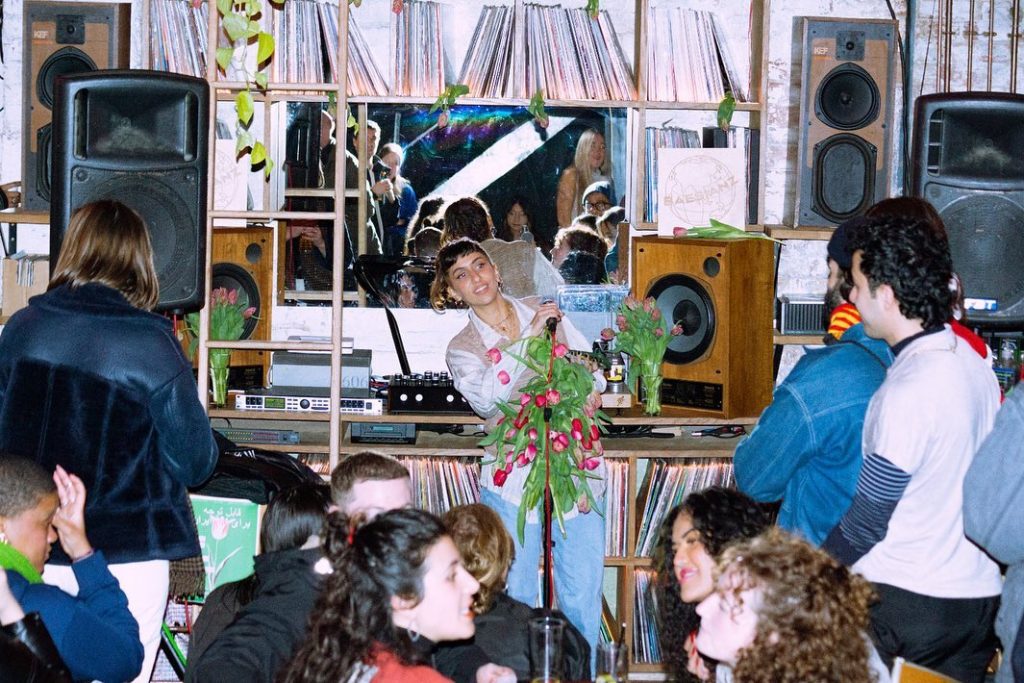
Baesianz is deconstructing the damaging narrative of individualism as the only possibility of success in the art world. “Baesianz is based on kinship. We don’t only have one story to tell,” says Sarah. “There’s this sense of a gatekeeping culture in the creative industry that can often make you feel like you can be the only Asian or person of colour here. Baesianz is the complete antithesis to that culture. We know that there is really room for everyone.”
Emphasising the value of physical spaces as an avenue to real connection and change within communities. “It’s really important to be experiencing the same piece of art, or performance together in the same space,” Roxy explains. “To reflect on all our reactions to it. The cinema club allows us to look together into the eyes of an Asian artist and communicate with each other about the ways it resonates with us.” As the art world moves towards more digital arenas, Baesianz reminds us of the productive possibilities of being together physically and not just taking up space, but interpreting different spaces and our creative responses towards them.
Their Football Club grew out of the same sense of joy in being together in a physical space. Watching the historic Lioness win this summer, we saw the power of visibility, of how it changed the narrative of women’s football, rippling from the national pitch to the classroom. “My sister always talked about how sports brings people together in a whole different way. It wasn’t until Baesianz FC that I understood that,” says Sarah. Nicole had been yearning to put together an Asian FC for Asian women, non-binary and trans players for a while, having been frustrated with the lack of representation on the pitch. Having played football in London since she was 7 years old, Nicole says, “I’ve experienced the beauty of how quickly you can make new friends in a safe, comfortable space, so I wanted to share that with others.” Starting out as a WhatsApp group of friends, it’s now grown to more than 100 members. From total beginners to advanced football enthusiasts, they welcome all levels of experience – whether you fancy a kick-about or a training session.
“I’ve experienced the beauty of how quickly you can make new friends in a safe, comfortable space, so I wanted to share that with others.
Nicole Chui
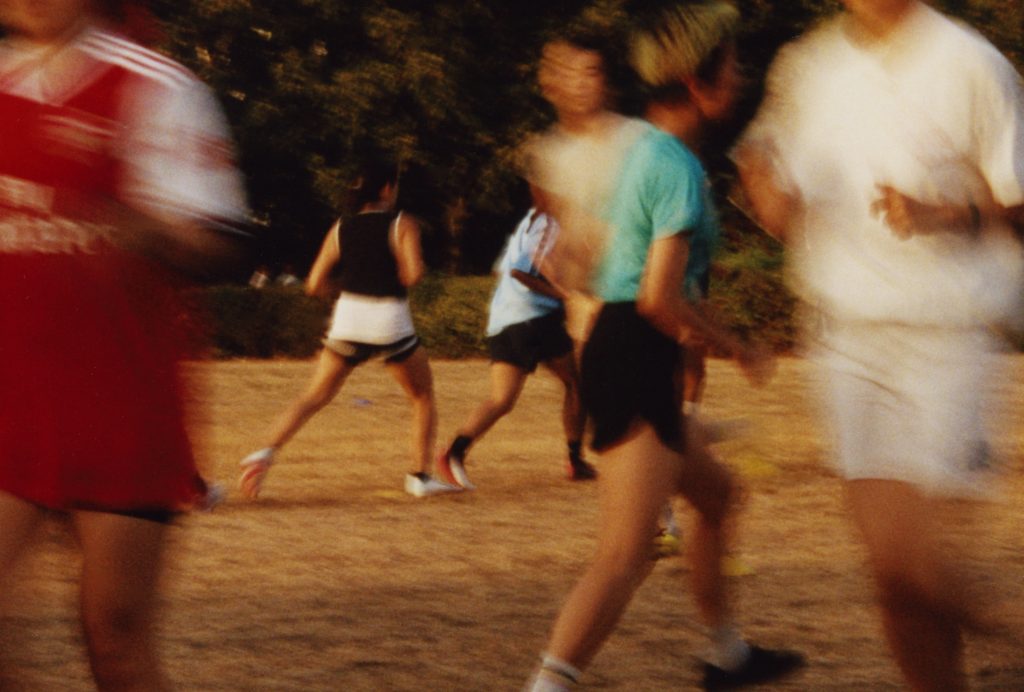
Challenging the idea of what a football club should look like, Baesianz is the first of its kind, showing that, “we exist”, says Nicole. In 2019, the BBC reported that out of almost 4,000 professional football players in England, only 0.3 percent were British Asian. By creating a safe space for an underrepresented group to play together, Baesianz is encouraging the younger Asian communities to pick up a ball and just feel at ease in that space. “Representation in football is important,” Nicole explains. “We experience what it feels like not being a traditional football fan or player.”
While Sarah, Sami, and Roxy admit that they didn’t have many “creative Asian role models to look at to growing up,” Baesianz has helped shift the narrative, to show the true generative power of community and uplifting one another with no other agenda, only care. As Sarah says, “Community is generative, it’s seeing what resources you have at hand and sharing them with others. We share with each other. It’s also joy. It’s many, many moments of joy.”
